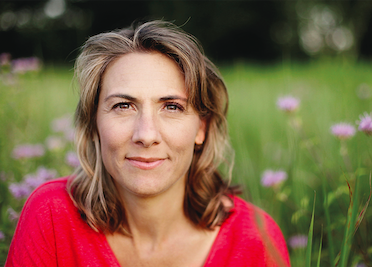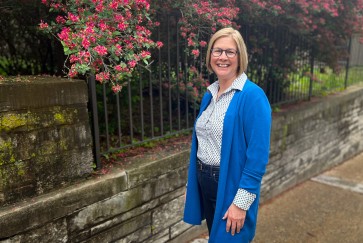“The Story of More: How We Got to Climate Change and Where We Go from Here,” by geologist Hope Jahren, is Northwestern’s One Book selection for the 2021-22 school year.
The latest by the bestselling author of “Lab Girl,” the book is an exploration of the consequences of population growth — from 3800 years ago in Mesopotamia when the population was approximately 100 million to the present day — and human habits of consumption on the planet and the actions that we all can take to fight back.
“Jahren explains how tremendous advances in health care, sanitation, agricultural productivity, energy production and technological innovation allowed the population to reach more than 7 billion. However, this process has also resulted in inequitable resource distribution, increased waste, environmental degradation, biodiversity loss, and a rapid rise in greenhouse gas levels leading to global temperature increases and sea level rise,” said Bill Miller, faculty chair of the One Book committee, professor of chemical and biological Engineering, and director of the Center for Engineering Sustainability and Resilience (CESR) at Northwestern Engineering.
CESR is a catalyst and connector for Northwestern faculty and students to develop sustainable cities, infrastructure and manufacturing processes — while conserving water and mitigating climate change — through research and educational efforts that span multiple departments and disciplines.
“Jahren asks us to ‘Use Less and Share More.’ She reminds us that ‘we are endowed with only four resources: the earth, the ocean, the sky and each other,’” Miller added. “We need everyone, not just scientists, to contribute to tackling climate change.”
An award-winning scientist, teacher and bestselling author, Jahren has been pursuing independent research in paleobiology since 1996. She was recognized by Time magazine in 2016 as one of the 100 most influential people in the world. Jahren is the Tuzo Wilson professor at the University of Oslo.
In addition to being a gifted writer and an award-winning scientist, Jahren has been teaching courses on climate change since 2009. “The Story of More” grew out of a class Jahren was teaching on climate change and her desire to translate data about the consequences of our population growth on the planet.
The “more” in Jahren’s title points to human habits of consumption and waste, but it also alludes to what “more” we could make of our numbered days on Earth while working toward a more equitable society.
“We wake in the morning and leave our homes and we work, work, work, to keep the great global chain of procurement in place,” Jahren writes in a section focused on food waste. “Then we throw 40 percent of everything we just accomplished into the garbage. We can never get those hours back. Our children grow up, our bodies wane and death comes to claim some of those we love. All the while, we spend our days making things for the purpose of discarding them.”
Jahren will give a virtual keynote address Thursday, Oct. 28, 2021, as part of a series of year-long events hosted by the One Book program.
The One Book One Northwestern Program is sponsored by the Office of the President and will include related films, lectures and other programming throughout the coming academic year. The campus-wide read is chosen by the University’s One Book selection committee. For questions, contact onebook@northwestern.edu.


